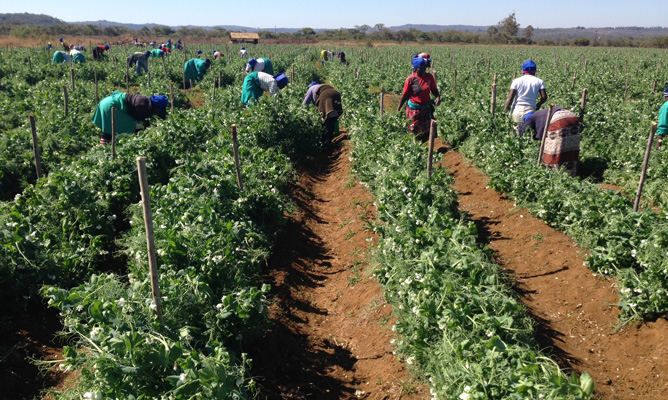
ECONOMICALLY-hamstrung Zimbabwe has passed new regulations ordering some 300,000 beneficiaries of President Robert Mugabe’s controversial land reforms to pay annual rent and levies, a state daily said Monday.
Mail and Guardian Africa
The new rules stipulate that “resettled farmers with permits and 99-year leases… shall be expected to pay rent and a development levy,” The Herald newspaper reported.

Mugabe’s government launched land reforms 15 years ago, in some cases driving white commercial farmers off their land to make way for landless blacks. The Mugabe government argued that the land had been stolen from indigenous Africans, in the first place, by colonialists.
Millions of hectares of farmland were parcelled out to more than 300,000 blacks, many of who lacked technical farming expertise.
But Zimbabwe’s revenue base has been depleted as the country buckles under a more than decade-long economic downturn.
The farmers will now be required to pay annual rental fees ranging from $3-$10 per hectare.
- Chamisa under fire over US$120K donation
- Mavhunga puts DeMbare into Chibuku quarterfinals
- Pension funds bet on Cabora Bassa oilfields
- Councils defy govt fire tender directive
Keep Reading
A development levy of up to five dollars per hectare per year will be used to fund maintenance of roads and other infrastructure in the farming areas.
Critics say the land reforms—lauded by Mugabe as a means to correct historical imbalances—mostly benefitted the long-time president’s allies and supporters.
They also blame the land reforms for the slump in food production which has seen the former regional breadbasket resort to importing grain to feed its people.
Tax authorities have hinted at imminent taxing of churches as the cash-strapped government battles to prevent its coffers from running dry.











